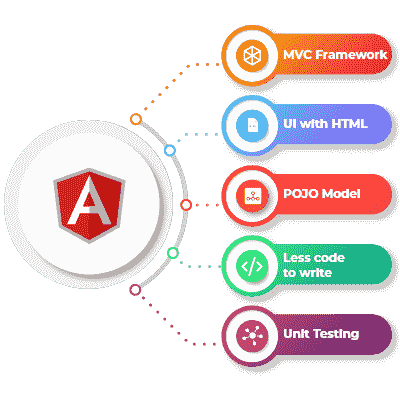Blitz News Digest
Stay updated with the latest trends and insights.
Angular Alchemy: Turning Code into Gold
Unlock the magic of Angular! Discover tips and tricks to transform your code into something extraordinary. Turn your skills into gold!
Understanding Angular: The Fundamentals of Building Dynamic Web Applications
Angular is a powerful front-end framework developed by Google that enables developers to create dynamic web applications with ease. It employs a component-based architecture, promoting the reuse of code and enhancing maintainability. Understanding the fundamentals of Angular is crucial for building scalable applications, as it offers features such as two-way data binding, dependency injection, and a robust ecosystem of tools and libraries. By mastering these core concepts, developers can significantly improve their productivity and deliver high-quality applications that provide exceptional user experiences.
One of the key aspects of Angular is its use of Modules, which serve as containers for various components, directives, and services. Modules help organize an application into cohesive blocks, making it easier to manage and navigate the codebase. Additionally, Angular's Routing module allows developers to create single-page applications that dynamically load content without refreshing the page. By leveraging these fundamental features, developers can build responsive and performant web applications that meet the demands of today's users.

10 Tips for Optimizing Your Angular Application Performance
Optimizing the performance of your Angular application is crucial for delivering a smooth user experience. Here are 10 tips that can help you enhance your app's efficiency:
- Lazy Loading: Implement lazy loading to load modules only when they are needed, reducing the initial load time.
- Change Detection Strategy: Utilize the OnPush change detection strategy to avoid unnecessary checks and speed up rendering.
- Ahead-of-Time (AOT) Compilation: Use AOT compilation to pre-compile your templates, which can result in smaller bundle sizes and faster rendering.
- Track By in ngFor: Optimize your *ngFor loops by using trackBy to improve the performance of lists.
- Service Workers: Implement service workers for better caching mechanisms to serve your application faster.
In addition to the above methods, keep in mind these additional tips for further optimization:
- Optimize Third-party Libraries: Ensure that any third-party libraries you use are optimized for performance and are necessary for your application.
- Bundle and Minify: Minimize your JavaScript and CSS files to reduce load times. Tools like Webpack can be helpful.
- Use Web Workers: Offload heavy computations to Web Workers to prevent blocking the UI thread.
- Profile and Monitor: Regularly profile your application with tools like Angular DevTools to identify bottlenecks and areas for improvement.
- Keep Dependencies Updated: Always keep your Angular framework and other dependencies updated to benefit from performance enhancements and security patches.
Common Angular Mistakes: How to Turn Your Code into Gold
When developing with Angular, it's easy to fall into common traps that can hinder your application's performance and maintainability. One of the most prevalent mistakes is not utilizing Angular's built-in features. For instance, failing to use the Angular CLI for project setup and asset management can lead to a disorganized codebase. Additionally, neglecting the dependency injection system can result in tightly coupled code, which complicates testing and refactoring. Always remember to leverage tools like RxJS for handling asynchronous data streams effectively, as neglecting this can lead to unoptimized code that is difficult to manage.
Another common oversight is mismanaging component lifecycle hooks. For instance, using ngOnInit for heavy data fetching or performing DOM manipulations can lead to performance bottlenecks. Instead, consider using ngAfterViewInit for tasks that require the view to be fully initialized. Moreover, be wary of large or complex components; implementing Smart vs. Dumb Component patterns can help maintain clarity and efficiency in your code. By recognizing these pitfalls and actively avoiding them, you can truly turn your Angular code into gold, making it more efficient, maintainable, and robust.